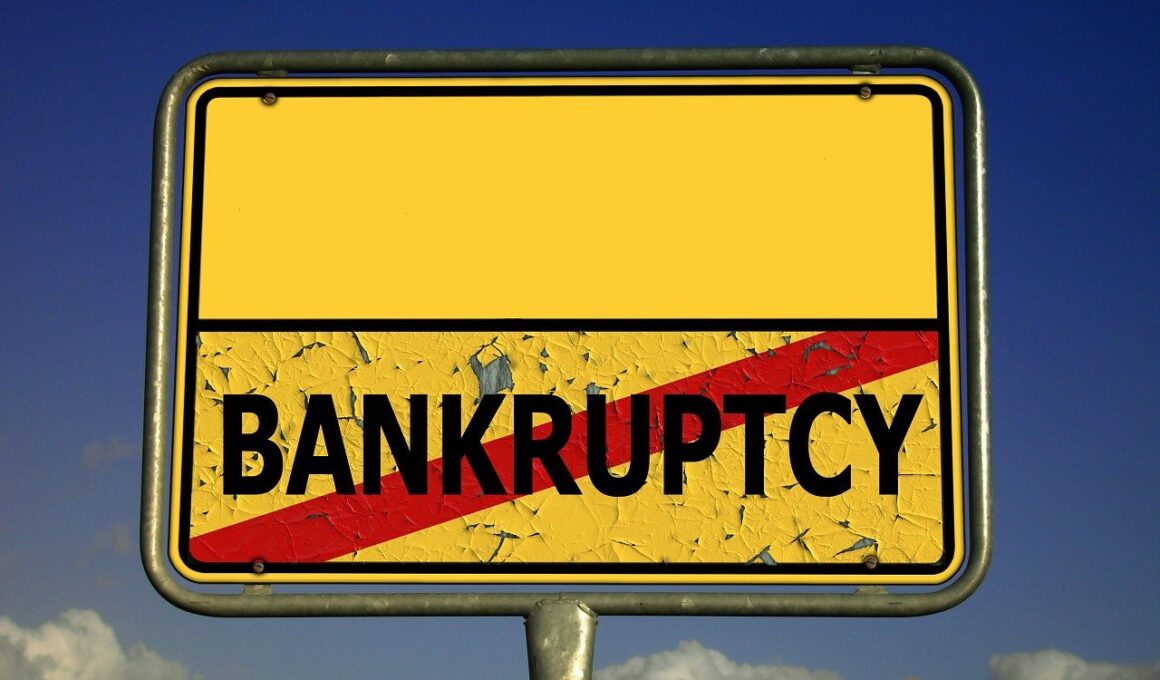The Role of Income in Bankruptcy Eligibility
Understanding income’s role in bankruptcy eligibility is crucial. In the United States, the bankruptcy process aims to provide relief for debtors struggling financially. This process largely depends on the income that an individual or family receives. To determine eligibility for bankruptcy, courts evaluate income levels against specific thresholds. These thresholds ensure that those who genuinely cannot pay their debts receive adequate protection under the law. Evaluating income involves more than just salary; it includes wages, business income, rental income, and even social security benefits. Bankruptcy law often uses the “means test” to assess eligibility. This test compares the debtor’s average monthly income to the median income levels of similar households in their state. If their income is below the median, they typically qualify for Chapter 7 bankruptcy. Conversely, if it’s above the median, individuals may need to consider Chapter 13 bankruptcy to restructure debt repayment. Knowing how different types of income affect eligibility is essential when evaluating bankruptcy options. Consulting with a bankruptcy attorney can help clarify these complex issues and provide tailored advice.
For many individuals considering bankruptcy, understanding gross versus net income is vital. Gross income is the total amount earned before any deductions, while net income reflects actual take-home earnings after taxes and other deductions. Courts generally base bankruptcy eligibility on gross income to ensure that all available funds, regardless of personal expenses, are accounted for in debt assessments. Applicants have to document all sources of income to establish an accurate financial picture. This includes employment income as well as any side jobs or freelance work. If self-employed, it’s crucial to accurately represent monthly earnings and expenses, and this can complicate things. Deductions allowed for calculating monthly net income may differ, which must be carefully documented for the bankruptcy proceedings. If applicants fail to disclose all income, it could lead to delays or that their case may even be dismissed. Additionally, understanding the effect of bonuses or irregular income on overall eligibility helps individuals prepare for their financial future more effectively. With potential pitfalls around revenue disclosure, successful navigation of processes requires effort, clarity, and sometimes expert advice.
The Impact of Income on Chapter 7 Bankruptcy
When it comes to Chapter 7 bankruptcy, income significantly influences eligibility. This type of bankruptcy allows individuals to discharge most debts and start anew, but strict income criteria must be met. The means test determines whether someone qualifies by comparing their income to the median for their household size in their state. If their income is below this threshold, they generally qualify easily for Chapter 7 bankruptcy. However, if their income exceeds the median, additional calculations are necessary to assess disposable income. Disposable income consists of what’s left after essential expenses. A comprehensive understanding of income streams allows debtors to ascertain how they can position themselves for bankruptcy eligibility effectively. Any additional sources of income, such as tax refunds or side jobs, may also play a role in this assessment. Moreover, if creditors suspect an attempt to manipulate income declarations to qualify for Chapter 7, they may dispute filings. Transparency and accuracy in reporting income are crucial to avoid complications. Hence, it’s advisable to work closely with a bankruptcy attorney when considering Chapter 7 to ensure all financial factors are explicitly addressed.
Another essential area to explore is the relation between income changes and bankruptcy eligibility. Fluctuations in a debtor’s income can dramatically impact their bankruptcy situation. An increase in salary or a new high-paying job might affect eligibility status, especially if the individual was previously close to the income threshold. In contrast, significant income reductions could render previous payment plans unsustainable, prompting a reassessment of available options. Furthermore, financial crises can also lead to material decreases in income, making it challenging to meet existing commitments. In such cases, it’s advisable to analyze the financial landscape promptly. Reporting these changes ensures compliance with bankruptcy court requirements and can lead to updated eligibility, particularly in existing Chapter 13 repayment plans. Hence, staying in close touch with a legal expert during volatile financial situations is paramount. They can guide next steps, whether facing increased pressure or decreased fiscal stability. Understanding how changing income levels relate to ongoing debt management is vital for maintaining overall financial health throughout the bankruptcy process.
Income and Chapter 13 Bankruptcy Plans
Chapter 13 bankruptcy is significantly influenced by an individual’s income situation, especially concerning repayment plans. This type allows debtors to reorganize debts into manageable payment plans. The payment agreed upon depends entirely upon the debtor’s gross monthly income, minus allowable expenses. Bankruptcy courts typically want assurance that individuals can commit to and maintain these planned payments. A reliable source of income stream emerges as a key requirement for successful Chapter 13 filing. Moreover, changes in income during repayment can lead to a modification of the repayment plan. An increase in income may lead to higher payment amounts, while a reduction might necessitate adjustments. Monitoring income closely while in Chapter 13 helps debtors stay compliant with court requirements and maintain their repayments. Unforeseen job loss is one scenario in which debtors might find themselves in a challenging position if they cannot meet the set payment amounts. In situations involving increased financial strain, seeking an adjustment could provide necessary relief. This proactive approach is essential to sustained financial recovery and avoids potential dismissal of bankruptcy cases.
The role of income extends beyond eligibility and impacts the overall strategy for individuals facing bankruptcy. Individuals need to develop a conscientious plan that accounts for income and expenditure trends during and after bankruptcy. Establishing a sustainable budget during these proceedings is crucial to avoid future financial anguish. Post-bankruptcy, individuals should also monitor income trends and expenses as they strive to rebuild credit. Developing good financial habits during this process can facilitate future successes. Furthermore, individuals can also explore education about financial literacy to understand how to maximize their income to keep debts at a manageable level. Knowledge on available resources can empower debtors to navigate their recovery effectively. Programs and workshops often exist to assist those recovering from financial difficulties. Emphasizing the importance of income in these discussions will not only help individuals maintain their bankruptcy status but also prepare them for a more financially secure future. Engaging with local resources is critical for facilitating a successful recovery journey, transforming financial knowledge into action.
Conclusion: Navigating Income in Bankruptcy
In summary, income plays a vital role in determining bankruptcy eligibility across various chapters. Recognizing how different forms of income affect qualifying criteria ensures that individuals are adequately prepared for their bankruptcy proceedings. Those considering bankruptcy may improve their outcomes by seeking clarity regarding their financial situations, leveraging legal support, and following sound financial principles. As economic conditions shift, being able to adapt one’s strategy in response to income changes is paramount. Consulting professionals can yield insights tailored to specific circumstances. Ultimately, bankruptcy law’s intricacies emphasize why individuals should never take guidance lightly. Understanding how to navigate the intersections of income and bankruptcy fosters informed decisions that facilitate recovery processes. Staying informed about financial literacy, emerging economic trends, and available legal resources can greatly support individuals’ objectives. The road to financial stability may prove challenging, but leveraging knowledge about income against bankruptcy regulations can pave the way. Awareness ultimately ensures that individuals can emerge from their financial difficulties empowered and better equipped to manage finances effectively going forth.


